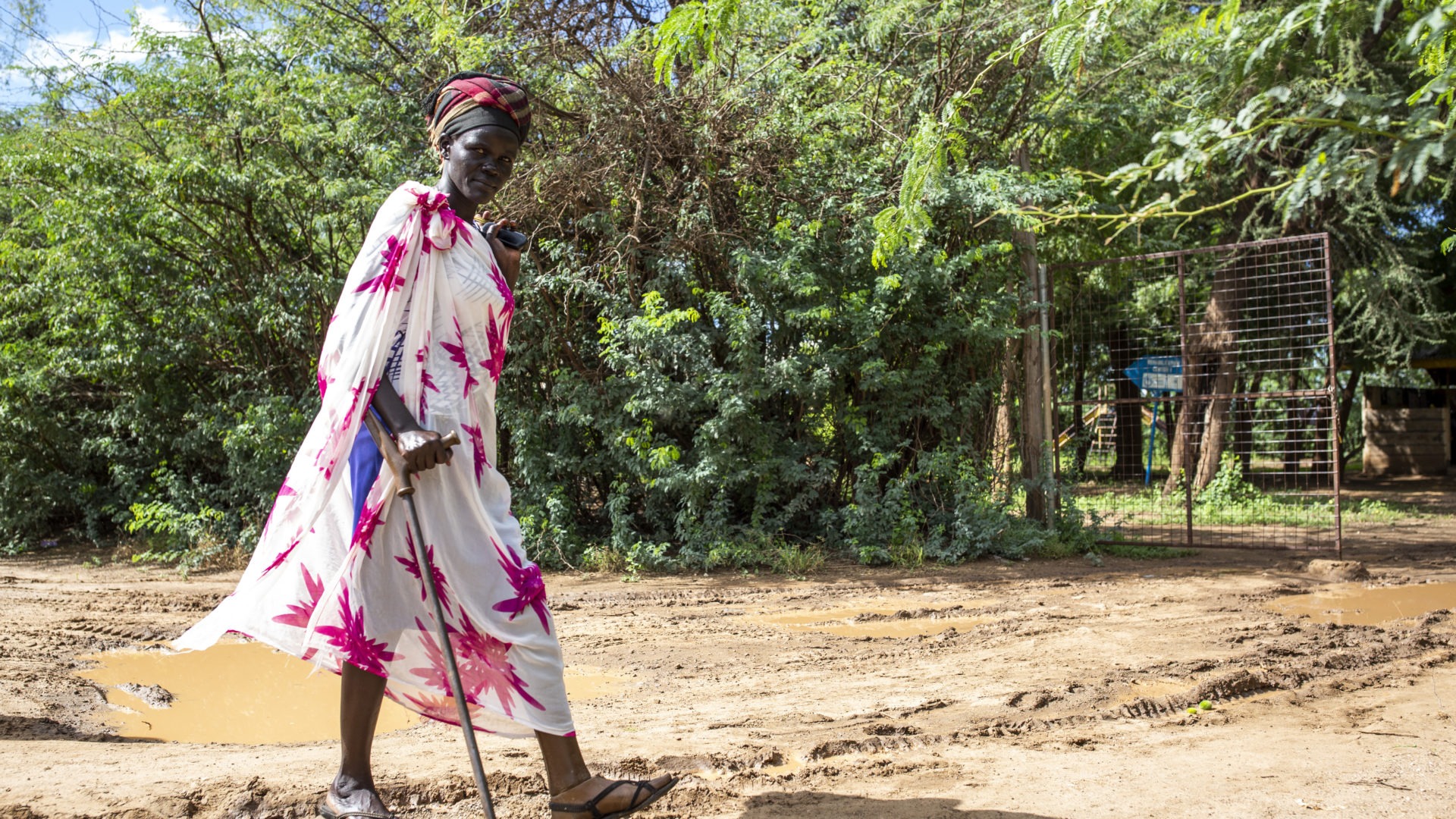
© Patrick Meinhardt/ HI
We are happy to announce that the Leave no one behind! project has started its third phase, focusing in particular on the practical implementation of the Inter-Agency Standing Committee (IASC) Guidelines on the Inclusion of Persons with Disabilities in Humanitarian Action.
During humanitarian crises, persons with disabilities are often excluded from relief efforts. Various environmental, institutional and attitudinal barriers prevent them from accessing humanitarian assistance. Therefore, it is necessary to raise awareness in a comprehensive way and develop professional capacities to mainstream inclusion in humanitarian action both in global and local contexts. This is also the primary aim of our project.
The project draws on the IASC Guidelines on the Inclusion of Persons with Disabilities in Humanitarian Action to help humanitarian actors better understand the human rights-based approach to disability in their work. Phase 3 is a combination of global and local interventions that builds on the results and good practices of the previous phases of the project and aims to benefit the entire humanitarian community.
In particular, the project is expanding its work to East and West Africa, including six pilot countries: Somalia and Somaliland, South Sudan, Uganda, Nigeria, Niger, and Cameroon. In these countries, the project will support the operationalisation of the IASC Guidelines and jointly address the need for technical support, training and tools of local and international non-governmental organizations, UN agencies, and organizations of persons with disabilities. The work includes adapting sector-specific assessment tool-sets in the target countries to identify and monitor disability-specific needs, barriers and enablers for accessing protection and humanitarian services. Further, the aim is to strengthen in-country technical capacity in all six pilot countries by contributing to an inter-agency technical support mechanism on country coordination level. Lastly, the project will set-up a pool of local experts in inclusive humanitarian action in Somalia, Cameroon and Nigeria to respond to sudden-onset emergencies.
On the other hand, the project also continues the capacity development of German, international humanitarian actors and local partner organisations by providing tailored in-house awareness-raising workshops and cross-organisational sector-specific trainings in Germany and in the two pilot regions. Further, the project will develop sector-specific training packages, continue and enhance technical support modalities, provide lectures in universities and support other relevant humanitarian events.
The Institute for International Law of Peace and Armed Conflict (IFHV) will continue and amplify its work on applied and participatory field research to document promising, good practices and innovations in operationalising the IASC Guidelines. The common goal is to share the project findings, developed materials and tools as well as the research reports with the humanitarian community at the global, regional and local level.
The project is funded by the German Federal Foreign Office (AA) and carried out together with the Christoffel Blindenmission Christian Blind Mission e.V. (CBM) and the Institute for International Law of Peace and Humanitarian Law (IFHV) at the Ruhr-University Bochum.